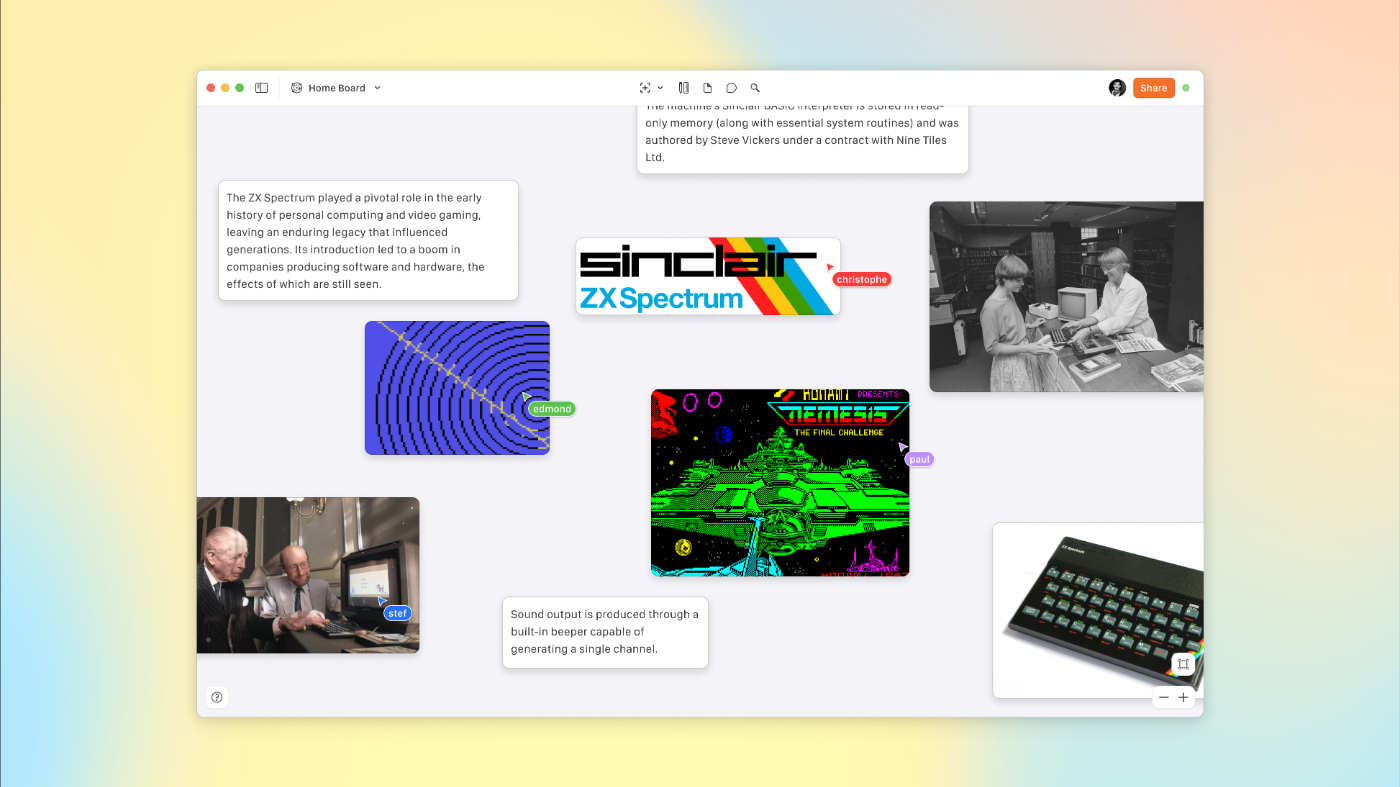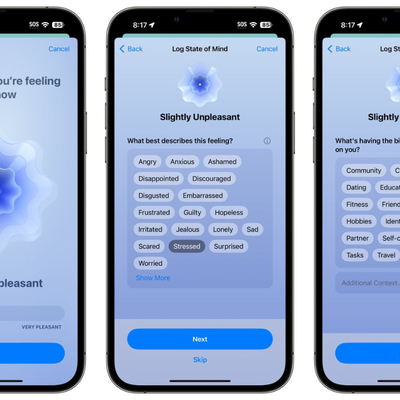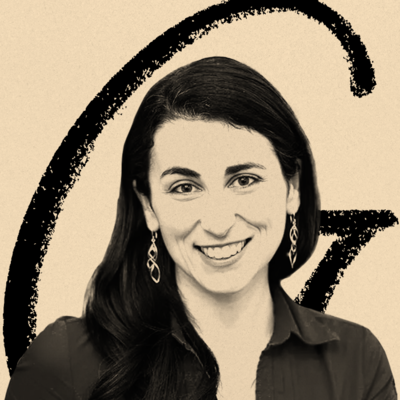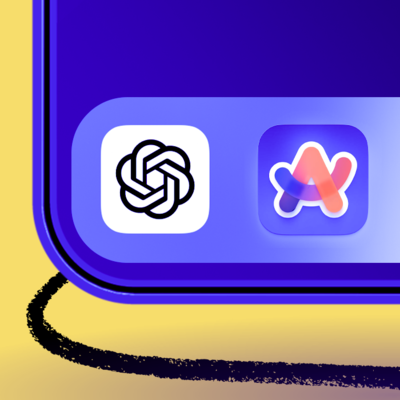Economist Tyler Cowen on How ChatGPT Is Changing Your Job
How a deep thinker uses AI to think, read, travel—and navigate the future of work

Sponsored by: Kosmik
Forty years ago, the Macintosh revolutionized the way we work with computers, integrating everything a user could need on a metaphorical desktop. Forty years later, it's time to rebuild our digital home. Meet Kosmik, an all-in-one workspace where you can seamlessly integrate text, images, videos, PDFs, and links.
TL;DR: Today we’re releasing a new episode of our podcast How Do You Use ChatGPT? I go in depth with Tyler Cowen, professor of economics at George Mason University, one-half of the popular Marginal Revolution blog, and deep thinker about the impact of technology on life, work, and the economy. Watch on X or YouTube, or listen on Spotify or Apple Podcasts.
When did you first think about the impact of AI on your job?
My best guess would be at the tail end of 2022, when OpenAI released ChatGPT.
Tyler Cowen has been pondering this question for a decade. In 2013, he wrote a book about how AI would change the future of work called Average Is Over. In it, he argued that the economy will shift to reward those who can enhance the capabilities of technology. Today, his incredible foresight is more than words and theories—it’s our reality. The “intelligent machines” he wrote about are well and truly here, so who better than Tyler himself to light the way ahead?
Tyler’s day job is teaching economics at George Mason University, but he also moonlights as a prolific writer. He co-writes the leading economics blog Marginal Revolution, where he has published daily for over 20 years. He is also the author of 17 books, the latest of which is an AI-fueled interactive experience that analyzes the lives of influential economists and crowns one as the greatest of all time.
In this episode, we explore Tyler’s predictions about how AI will impact the economy, distilling decades of contemplation into insights. We watch him interact with ChatGPT and learn how he uses it as a universal translator when he travels, a reading companion, and a research tool. We also see him use AI search tool Perplexity and walk through how he fits the two tools together in his workflow.
Kosmik offers an expansive, infinite canvas that adapts to your needs. Whether you're organizing complex projects or just brainstorming ideas, the intuitive interface puts everything at your fingertips. With Kosmik's unique built-in browser, explore the web and capture content without switching constantly between apps. Centralize various media and create your single source of truth, for you and your team.
This is a must-watch for anyone who is motivated to understand and thrive in the future of work with AI. Here’s a taste:
- The long and short of AI. Tyler thinks that the immediate effect of AI will be to level the playing field, boosting the abilities of those who currently perform at an average or even below-average level. He suspects, however, that the long-term effects will be considerably less egalitarian, where “the people who can start projects will be the major beneficiaries. They'll have better record keepers and translators and mathematicians and coaches and colleagues and advice givers.”
- AI for human coordination. Tyler believes that AI provides great advice on how to manage people, and that the people who leverage it for this purpose will be very productive. “A lot of companies might become much smaller, but still rather potent…I think Midjourney, when it first had its breakthrough, had, what, seven or eight people working there,” he says. He also wonders about a darker side of this coin: He thinks an underappreciated risk of AI is its ability to coordinate poorly run terrorist organizations, increasing their chances of creating harm.
- ChatGPT as a universal translator. Tyler says his use of ChatGPT varies significantly between his iPhone and his laptop. On his iPhone, he uses it for personal things: as a universal translator in Tokyo, to get local food recommendations in Paraguay, and to identify species of birds and plants in Honduras. (It’s no surprise that when I ask him later in the episode how his wife would describe him in five words, one of his responses is: loves to travel.) Tyler’s laptop-GPT use is centered around far more academic purposes, like learning about obscure history.
- Pushing ChatGPT into smart corners of the internet. Tyler has discovered the benefit of using specific ChatGPT prompts: the AI will go off to search an intelligent part of the ether and likely come back with a better answer than what a generic query would yield. “So if I ask it a question, say, from economics, what is inflation? The answer is not wrong, but it's not really better than Wikipedia because the question is too general. If I ask it a question, What is inflation? Answer as would Milton Friedman… [Y]ou're just, again, pointing it towards smarter bits, you know, in the matrices… [T]he stuff it knows connected with Milton Friedman is smarter than the stuff not connected to Friedman.”
- Perplexity AI v. ChatGPT. Tyler was reading a book about the Byzantine empire (as one does if you’re a professor, I suppose) when he found himself curious about the rate of inflation under one of its emperors. He turned to ChatGPT first, but it didn’t give him a clear answer. Tyler tries asking Perplexity AI the same question, and voila—in seconds, he has an answer with JSTOR and Reddit sources to back it up. “Google is for links, AI is for learning, Perplexity is for references, and [it] sometimes has context that GPT doesn’t because it's looking to tie it to references,” he says.
- ChatGPT in the classroom. Tyler is the coolest professor on the block. He’s teaching a class on the history of economic thought, and has incorporated ChatGPT into the curriculum. “GPT-4 is on the reading list. Everyone in the class is required to pay the 20 [dollars] a month to subscribe to it,” he says. This isn’t the first time Tyler has brought ChatGPT into the classroom: “I taught a class the year before to law students where I made them all write one of their three papers using GPT. Not solely, but you and GPT together figure out how to write the paper.” According to Cowen, teaching students the limits and scope of AI is an enriching experience.
- The Tyler Test. In the last section of the interview, I create a custom GPT based on Tyler’s personality, Tylerbot. We put it to the test by asking Tyler and his bot the same questions, and seeing how the machine matched up. Tylerbot got two out of three answers correct. Even the one it got wrong wasn’t technically incorrect; it just didn’t sound like Tyler. “We had two excellent ones and then one that's a perfectly fine answer, but has no Tyler in it. There you go,” Tyler says.
You can check out the episode on X, Spotify, Apple Podcasts, or YouTube. Links and timestamps are below:
- Watch on X
- Watch on YouTube
- Listen on Spotify (make sure to follow to help us rank!)
- Listen on Apple Podcasts
Timestamps:
- Intro: 00:57
- His predictions on AI’s immediate and long-term effects: 05:57
- How AI can be leveraged to manage people: 11:31
- Using ChatGPT as a universal translator during travel: 17:19
- Why he worries less about hallucinations: 21:00
- Using specific prompts to do deep research with ChatGPT: 22:00
- Why he prefers using Playground: 25:54
- ChatGPT goes head-to-head with Perplexity AI: 41:09
- Using ChatGPT in university classrooms: 49:58
- “Tyler” test: 57:59
What do you use ChatGPT for? Have you found any interesting or surprising use cases? We want to hear from you—and we might even interview you. Reply here to talk to me!
Miss an episode? Catch up on my recent conversations with writer and entrepreneur David Perell, software researcher Geoffrey Lit, Waymark founder Nathan Labenz, Notion engineer Linus Lee, writer Nat Eliason, and Gumroad CEO Sahil Lavingia, and learn how they use ChatGPT.
If you’re enjoying my work, here are a few things I recommend:
- Subscribe to Every
- Follow me on X
- Check out our new course, Maximize Your Mind With ChatGPT
My take on this show and the episode transcript is below for paying subscribers.
Thanks to our sponsor: Kosmik
Create a new digital hub and embrace the future of digital organisation. Say goodbye to nested folders, constant app switching, and tab overload. Join us at in our journey to create a new place to work, learn, play, and share.






